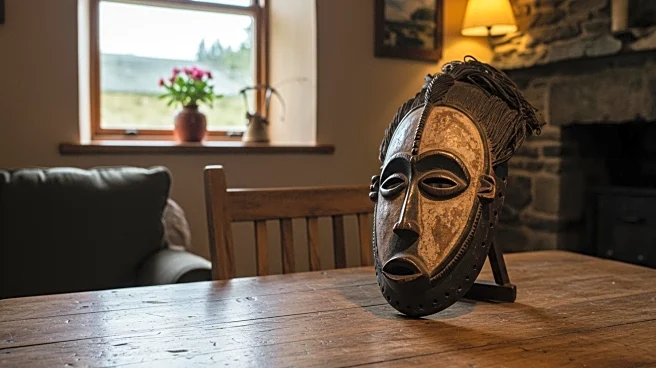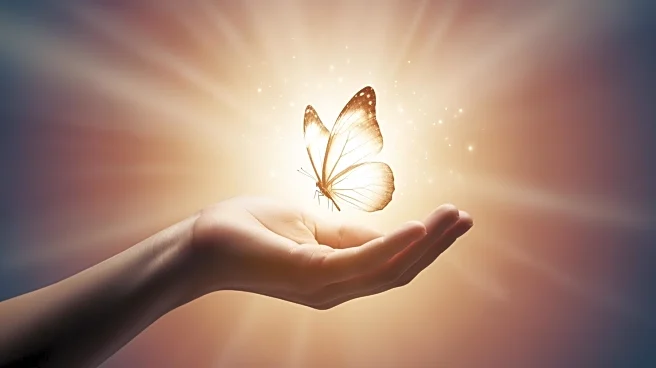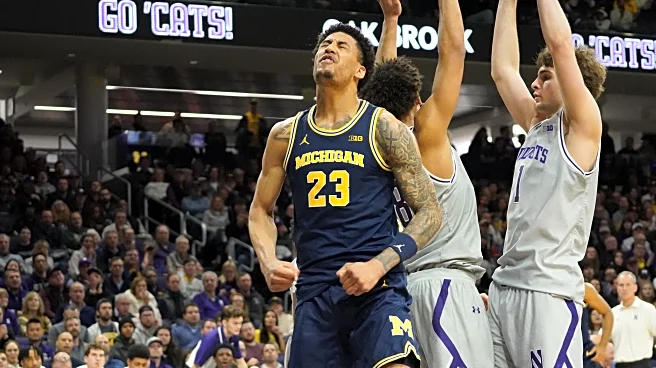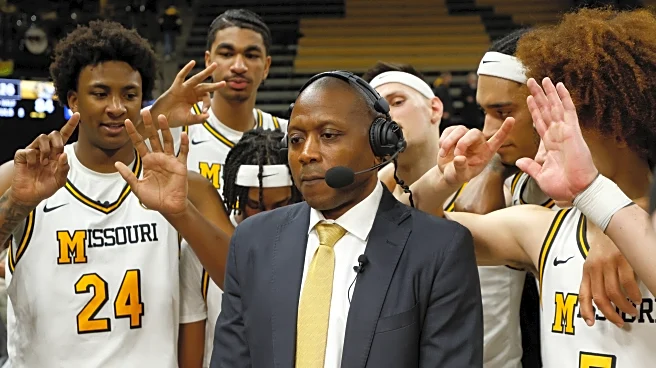What's Happening?
Kaura Taylor, a woman reported missing from Texas, has been found living with a group claiming to be a lost 'African' tribe in the Scottish woodlands. The group, known as the Kingdom of Kubala, is led by King Atehene, formerly an opera singer named Kofi Offeh, along with his wife Queen Nandi and their handmaiden Asnat, who is identified as Kaura Taylor. The tribe asserts they are reclaiming land in Scotland that was taken from their ancestors 400 years ago. Despite facing eviction notices and local opposition, they maintain they only recognize the laws of their deity, Yahowah, and aim to live a simple life connected to nature.
Why It's Important?
This discovery highlights complex issues surrounding cultural identity, land rights, and the clash between local laws and self-proclaimed sovereignty. The Kingdom of Kubala's presence in Scotland raises questions about historical claims and the legitimacy of their actions. For U.S. stakeholders, particularly Taylor's family, this situation underscores the challenges in international missing persons cases and the cultural dynamics involved. The broader implications may affect local governance in Scotland and provoke discussions on cultural tolerance and historical justice.
What's Next?
The Scottish Borders Council, in collaboration with Police Scotland, is managing the situation by providing advice and information about housing options and support services. The tribe's refusal to recognize local laws suggests potential legal and social conflicts ahead. Authorities may need to address the tribe's claims and their impact on local communities, while Taylor's family might seek further intervention to ensure her safety and well-being.
Beyond the Headlines
The Kingdom of Kubala's narrative of reclaiming ancestral land and fulfilling a prophecy introduces a unique cultural and religious dimension to the story. Their belief in a historical connection to Scotland and the establishment of a new kingdom reflects broader themes of identity and belonging. This situation may inspire similar movements or discussions about indigenous rights and historical reparations globally.










